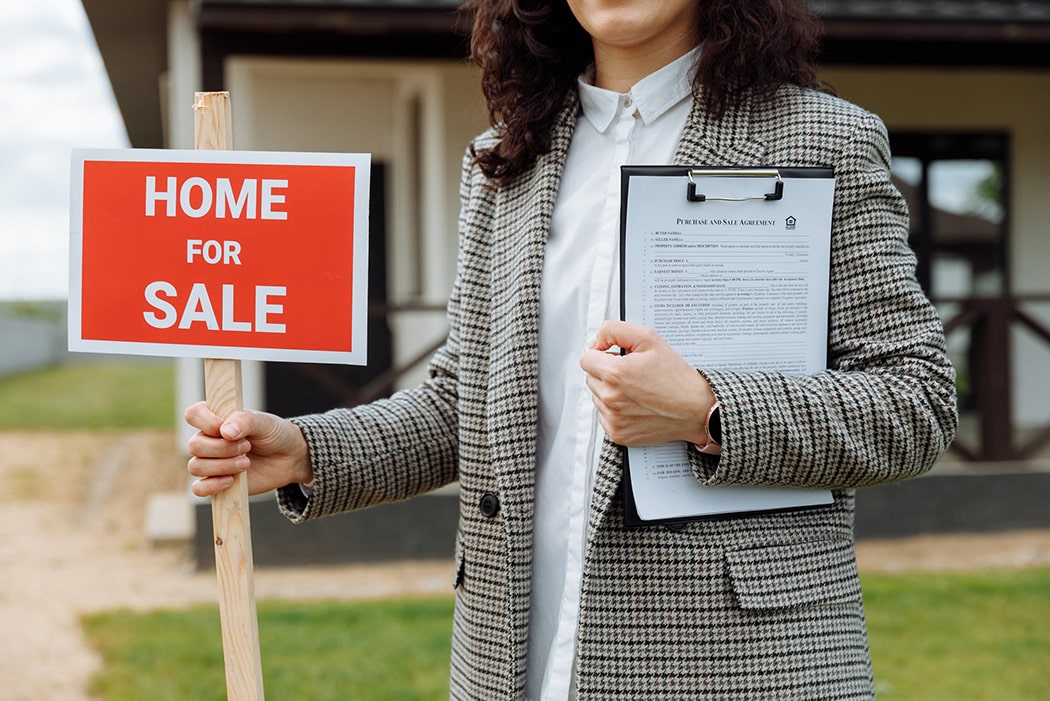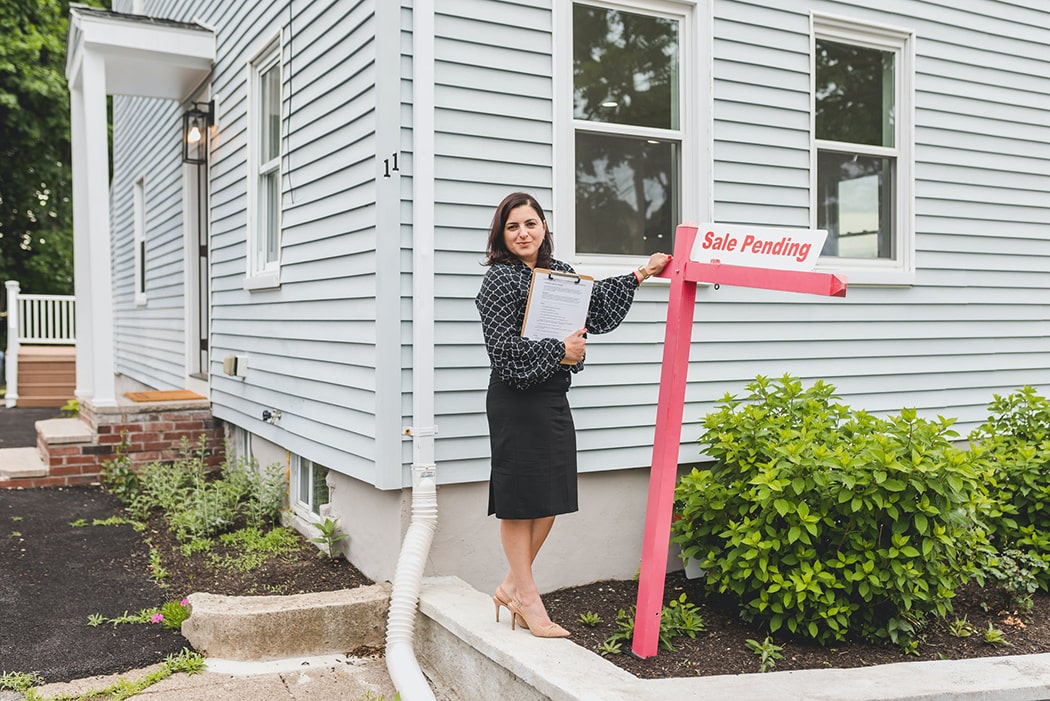
Real estate professionals are motivated when their effort, planning, and time pay off. They know that having the ideal real estate listing can make or break a sale.
When listing just one real estate property, a checklist might not be necessary. But when you start listing multiple homes simultaneously, using a real estate listing checklist is imperative. A real estate listing checklist enables you to seamlessly manage the asset, marketing, seller expectations, deadlines, negotiations, and other tasks. This article outlines the basic steps in a real estate agent listing checklist.
A detailed real estate listing checklist allows you to save time creating a new listing checklist. It outlines the basic tasks to perform at three different stages of the listing process. If you are wondering how to prepare a real estate listing, we’ve got you covered.
Get more Real Estate Leads now!
Real Estate Agent Listing Checklist - Stage One: Pre-listing
The first step to take before listing a property is to create a fantastic first impression and show your client how much value you can offer.
Present a Pre-listing Package
In this stage, you'll need to build rapport, establish trust, and offer value to potential sellers as a real estate agent.
When you first meet a potential seller, you can send a pitch deck or pre-listing package. The goal is to introduce your services to the potential client, so the pre-listing package must be comprehensive and well-organized.
A real estate pre-listing package should include:
Introduction
A professional biography and personal letter to the potential seller.
Advertising and Marketing
A marketing plan showing the basics of how you'll gain exposure for the client's property.
Statistics
Enter performance-based numbers. For example, the number of properties you've sold and the number of days (average) on the market.
Details of the Seller's Property
Show real estate market trends within the seller's community and how you'll price the property using CMA.
Sales Process
It enables clients to know what happens at each stage, so they'll understand what each party will do.
Paperwork
Samples of disclosures and contracts the seller will sign and checklists with inquiries to give them more insight.
You can send the pre-listing package to the potential seller by mail, email, or in person.
Deliver a Listing Presentation
After reviewing your pre-listing package, your potential client will be ready to see your listing presentation. Although it's similar to the pre-listing package, a listing presentation talks more about the market statistics of the seller's home and gives in-depth detail about your marketing plan and pricing strategy.
Focus on uncovering your client's experience with the entire sales process and their motivation for selling. For example, if they're moving because they bought a house elsewhere and want to sell quickly to close on the new home, focus on this and show them how you'll help them make the transition as seamless as possible. Your ultimate goal as a realtor is to show them how your value complements their needs.
Provide a CMA Report
Producing a CMA (Comparative Market Analysis) report will help price your client's property correctly.
The CMA records the seller's home size, condition, unique features, renovations, and more. You can use all these elements to compare the property to others in that neighborhood.
Make sure you go over your CMA report with the seller (don't send it through email) to enable them to ask questions and clarify the details. Make sure they're comfortable with the suggested price.
Sign a Listing Agreement
The last phase of this pre-listing process involves all parties signing the listing agreement. A listing agreement gives real estate brokers the right to advertise, market, list, and assist in selling their client's property within an agreed time frame.
After signing the listing agreement, other real estate agents won't be able to list or advertise your seller's property without your consent.
Each brokerage and state has its own unique version of the listing agreement. You can download a generic agreement online or ask your brokerage for one.

Real Estate Agent Listing Checklist - Stage Two: Active Listing
After the pre-listing phase is complete, it's time to assume your role as the sales agent. By getting exposure for the listing, you can generate quality buyer leads interested in buying the property and executing a sales contract.
Implement a Marketing Technique
Marketing is a vital part of your sales process as it increases the chances of reaching your target audience and luring potential buyers. You can start by installing a flier box and a lawn sign on the property, but there's more.
- You can use professional videos and photos
- Free social media platforms, including Instagram, Facebook, Twitter, etcetera
- Emails, letters, postcards
- Publish a single-property website or landing page to promote your listings.
You can check Ardor SEO to learn more about how to boost the number of targeted audiences on your real estate website using SEO.
Advertise the Listing
Place your seller's property on several listing sites (like MLS) to reach potential buyers and other real estate agents. Besides posting for free on social media, you can also use paid ads on sites like Google, Facebook, and YouTube.
Schedule Showings and Open Houses
Potential buyers are ready to visit a real estate property after being attracted to the listing through marketing and advertising. Set specific dates and times with the seller to hold the buyer showing or open house.
You can also provide virtual tours on real estate sites showcasing your client's property. It enables you to collect the contact details of potential buyers using web forms. You can learn how to do this by downloading a free real estate agent listing checklist online.
Execute Negotiations and Contract
You're the connection between the buyer's agent, seller, and buyer. Hence, you want to be sensitive, assertive, and professional with each party.
Make sure you present every offer and discuss them with your client. Provide valuable insights to help them make an informed decision without heavily influencing their choice.
As a messenger and resource between both sides, make your client feel as though you're a team looking to accept the best offer that enables them to achieve their goals. Once you've concluded, ensure to get the contract documents as soon as possible.
Real Estate Agent Listing Checklist - Stage Three: Closing
After executing the sales contract between your real estate property owners and buyers, your real estate business transaction is almost complete. The closing stage will involve several other players, such as lenders, title companies, and real estate lawyers. At this stage of the real estate process, your role is to ensure everything runs smoothly.
Monitor and Calculate Deadlines
While ensuring the listing is sold based on the contract, you must track and identify due diligence periods and important disclosure dates. Update your client when the buyer has (or hasn't) met deadlines, and communicate with the buyer's agent to make sure every item is checked off.
While you can monitor transactions by tracking each deadline on your calendar, management software for real estate properties helps to ensure you don't miss deadlines.

Track Appraisals, Title Insurance, and Inspections
The buyer and lender usually schedule and pay for inspections and appraisal, but as the property owner's agent, you'll coordinate access to the property. After releasing the reports, you might need to negotiate credits or repairs with your buyer's agent and monitor necessary re-inspections and changes.
Title insurance typically includes lender's coverage, owner's coverage, and extended coverage. The seller's location determines whether or not each party covers these insurance costs.
Provide the Closing Checklist for Sellers
Besides preparing the listing checklist for sellers, a real estate agent can assist the seller to move by providing a list of tasks, such as making any outstanding payment to home-related service providers, scheduling deep cleaning, changing their postal address, and taking inventory of needed security codes and keys.
Monitor the Closing Document Status Close
The final stage of your listing process involves ensuring the seller provides every necessary item and signs the required documents. They need to do these before the closing date.
The seller needs to provide:
- A valid photo ID (state-issued), such as passport or driver's license
- The deed
- Security codes and keys
- A certified check (if needed)
The seller will need to sign these documents (depending on the state):
- Certificate of title
- Property deed
- Loan payoff
- HUD-1 settlement statement
- Mechanic's liens
- Statement of information
- Statement of closing costs
- Bill of sale
As the seller's agent, you won’t sign any documents, but you need to be with your client to provide moral support and ensure the transaction is done correctly. At the first stage of the listing process, if you assured your client of an end-to-end experience, fulfilling that promise will show your actual value. This will thereby result in more referrals and recommendations in the future.
Final Thoughts
For investors or realtors looking to achieve success with their real estate business, this real estate listing checklist for agents explains the basics for listing properties. While properties and markets may vary, it's an excellent tool for bringing the buyer or investor and agent on to the same page when listing a property.
We know how essential it is for every real estate business to get its listings across to the right audience. Hence, we recommend that you visit Ardor SEO to learn more about how you can implement real estate local SEO strategies on your real estate site to get your properties in front of the right buyers.In today's world, digital experts are affordable and employ teams of experienced professional IT and content professionals. Our team is a vibrant mix of talented real estate professionals and writers who live, breathe, and create an all-things-real estate. If you find yourself too busy or overwhelmed by the things you must do to soar to the highest visibility to both buyers and sellers in your area, don't be shy - discover real estate SEO experts.

